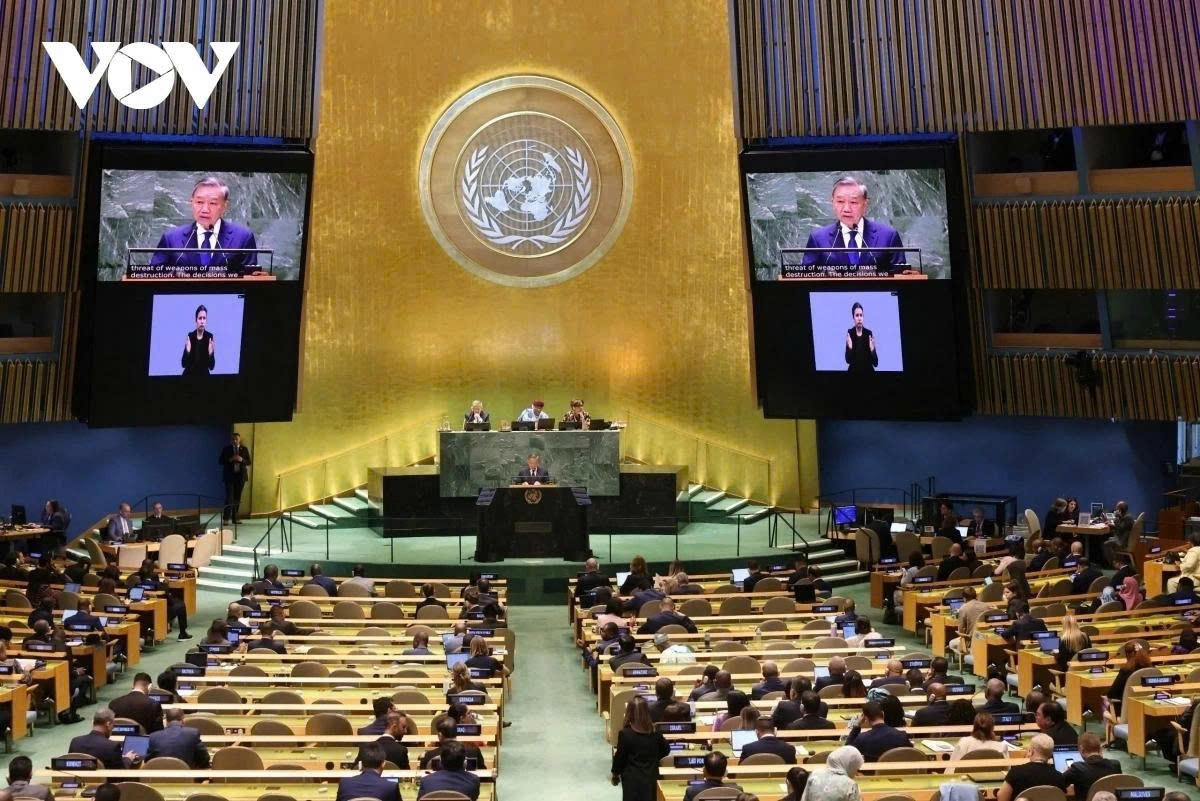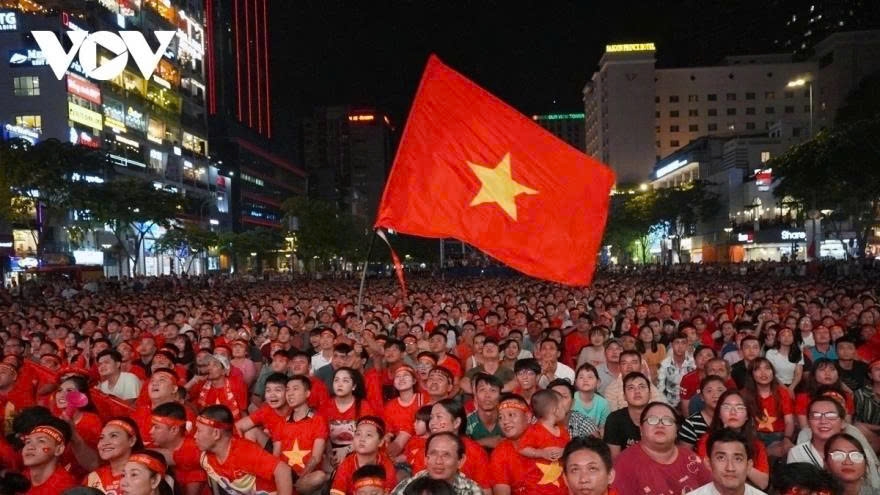VOV.VN - Over the past 80 years of national construction and development, through historic upheavals, Vietnam has risen to become a country of growing strength, deep international integration, and an increasingly recognised role and reputation on the global stage.

Under the leadership of the Communist Party of Vietnam and the effective governance of the Government, the country has transformed from poverty and war-torn land into a modern economy with political stability and social order. By forging diplomatic ties with 194 countries and Strategic or Comprehensive Partnerships with 34, including all permanent UN Security Council members, Vietnam is creating an unparalleled global partnership network that underpins its sustainable rise in the international arena.
The Đổi mới (Renovation) process initiated and carried out by the Communist Party in 1986 has taken Vietnam from a besieged, underdeveloped economy to one of the world’s 34 largest, with GDP expanding nearly 100 times and per capita income rising from under US$100 to approximately US$4,700 in 2024.
In a recently published article, Party General Secretary To Lam highlighted that Vietnam’s 40 years of international integration have achieved “historic achievements.” The country has signed 17 free trade agreements linking it with more than 60 major economies, placing it among the world’s top 20 trading nations and the top 10 remittance recipients. These advances have strengthened livelihoods and laid the foundation for sustainable growth.
Such remarkable achievements have earned international acclaims. Mariam Sherman, World Bank Country Director for Vietnam, Cambodia, and Laos, Vietnam has achieved unprecedented growth and poverty reduction, cutting extreme poverty from 50% of the population to only 1%, the quickest decline ever recorded.
Shatanu Chakraborty, Asian Development Bank Country Director in Vietnam, affirmed that regional and global economic integration has been a key driver of growth. In his opinions, Vietnam’s economic journey has often been described as a remarkable success story, and the country’s strategic choices, he believed, are both timely and well-suited to today’s global challenges.

Other diplomats also view Vietnam not only as a development success story but also as a constructive force shaping a peaceful, dynamic region. Australian Ambassador Gillian Bird described Vietnam’s 80-year development as extraordinary, reflecting the resilience, innovation, and solidarity of the Vietnamese people. Malaysian Ambassador Dato' Tan Yang Thai noted that Đổi mới marked a turning point, helping Vietnam deeply integrate and emerge as a major global production hub. Swiss Ambassador Thomas Gass stressed that Vietnam’s growing role in fostering peace and cooperation cannot be denied.
Moroccan Ambassador Jamale Chouaibi underscored Vietnam’s responsible global role, citing its active contributions to UN peacekeeping missions and its expanding partnerships through multilateral cooperation mechanisms such as the Asia-Pacific Economic Cooperation (APEC), the Regional Comprehensive Economic Partnership agreement (RCEP), and most recently as a BRICS partner.
In fact, Vietnam has repeatedly assumed key leadership roles such as ASEAN Chair and APEC Chair, while also serving as a member of important UN bodies including the Security Council, Human Rights Council, the Executive Board of the World Health Organisation (WHO), and the Council of the Universal Postal Union (UPU). This highlights the country’s credibility and responsibility in the international community.
Eighty years after the August Revolution and National Day (September 2, 1945 - 2025), Vietnam has established itself as a resilient, dynamic, and responsible middle power, not only within ASEAN and the Asia-Pacific but also globally. These remarkable achievements in diplomacy and international integration have contributed significantly to national defence and created strong momentum for development in the new era.
As Vietnam is entering a new era, the diplomatic sector is committed to continuing to write the glorious history of diplomacy in the Ho Chi Minh era, being dedicated to serving the country and the people, promoting the spirit of pioneering, and creating momentum and position to help the nation firmly progress towards new development milestones.
VOV.VN - Amid growing global uncertainties, Vietnam is adapting to new trends and opportunities, with economic diplomacy poised to expand development space, enhance competitiveness, and strengthen strategic economic autonomy, according to Deputy Minister of Foreign Affairs Nguyen Minh Hang.
The traditional solidarity, special friendship and comprehensive cooperation between Vietnam and Cuba have served as a beacon for international relations and become a torch lighting the path of their collaboration and development, according to Deputy Foreign Minister Dang Hoang Giang.
Bình luận
Bình luận của bạn sẽ được xét duyệt trước khi đăng